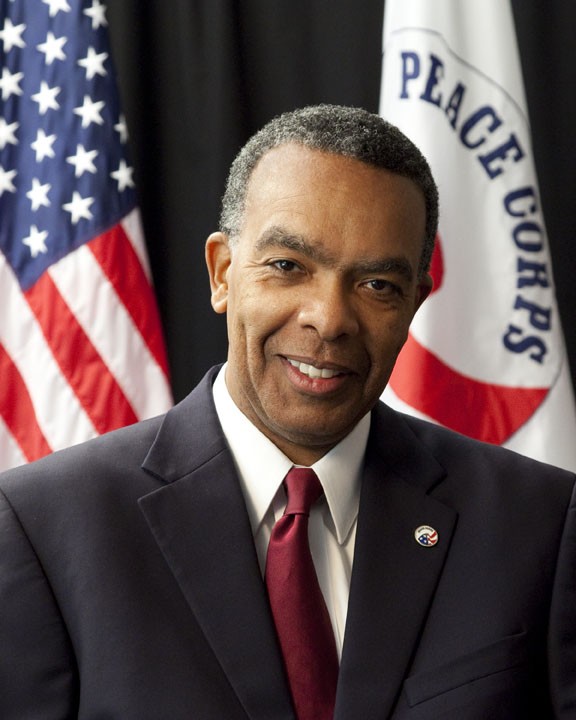Q&A with Peace Corps Director
Special Visit to UCSB for Agency's 50th Anniversary
Eighteenth director of the Peace Corps Aaron S. Williams shared insights about “The Future of International Service” last weekend in UCSB’s Campbell Hall. The free lecture was the last event of UCSB’s month-long celebration for the Corps’ upcoming 50th anniversary.
Williams is the fourth director to have previously served as a volunteer — in the Dominican Republic from ’67-’70 — in the Corps’ half-century history. He was sworn into the position in late August of 2009 after his nomination from President Obama and approval from the U.S. Senate.
The Independent grabbed a quick Q&A with Williams before his visit.

How has the Peace Corps advanced in the past 50 years?
The Peace Corps continues to pursue the original mission that we’ve had these past 50 years of promoting world peace and friendship. I think that in the 21st century, it’s really important for Americans to be able to reach out and bridge the gap between us and the rest of the world. In most of these countries where we serve, the Peace Corps volunteers will probably be the only Americans that those people will ever have the chance to meet to really see the true side of America.
Where do you see the Peace Corps 50 years from here?
I see it expanding in a number of countries. I think Americans are interested and committed to service, and I think they’re responding well to President Obama’s call to service — whether it’s in the military or in the Peace Corps or in domestic service. I think that it gives Americans a chance to engage — in most cases, early on in their careers and in their lives — with a leadership experience that is unique and will serve them well in the future when they return home.
Out of the 18 Peace Corps directors, you’re the fourth to have served as a volunteer. How has your experience in the Dominican Republic benefited you?
My Peace Corps experience was transformative, and it really changed everything in my life. Not a day goes by in my career when my Peace Corps experience isn’t relevant in terms of leadership, working with other teams, and dealing with complexity. During my career in foreign service and as an international development worker — working with different cultures and different languages for the past 30 years — Peace Corps has made all the difference in the world. When you join the Peace Corps, you find yourself to be associated with a wonderful group of Americans who really have a zest for life and a determination to make the world a better place.
Does UCSB stand out in the volunteers it generates?
University of California, Santa Barbara has been one of our top schools for many years. As a matter of fact — just kind of a personal anecdote — my roommate in the Peace Corps was a graduate of the University of California, Santa Barbara. I met him in the Peace Corps when we were in training, and he’s one of the greatest people I’ve ever worked with.
Why do you feel it’s important for people to join the Peace Corps today?
In order to have a successful career in the 21st century, you need to be engaged in the global economy and the global market. If you want to have a first-hand experience of working with other people, to help them achieve their goals and work on their priorities in a real day-to-day environment, then the Peace Corps is a marvelous opportunity. It’s a bridge to gaining those kinds of understanding. If you want to be a global citizen, engaged in the global economy and global affairs, I can’t think of a better opportunity than the Peace Corps. And 200,000 Americans have already taken advantage of that call, and now they are leaders throughout our government. They’re leaders in national government, in health care organizations, and at the university level. They’re business leaders, teachers and professors; they’re in every walk of life. It’s a wonderful group — or fraternity, if you will — to join.



